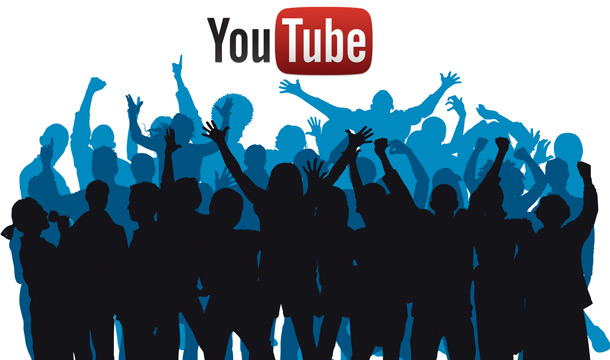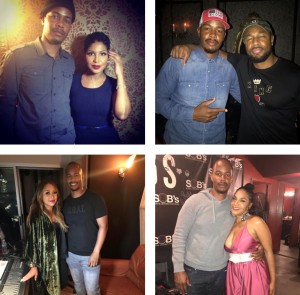Online giant YouTube is stirring up quite the controversy with their planned music streaming service, which reportedly will block music from independent labels that do not adhere to their non-negotiable contract.
The Worldwide Independent Network (WIN) is speaking out about the Google owned company, claiming YouTube is trying to force Indies to sign what many labels are calling highly unfavorable, and non-negotiable terms, which undervalue existing rates in the marketplace from partners such as Spotify and Deezer.
Alison Wenham, CEO of WIN said, "Put simply, by refusing to engage with and listen to the concerns of the independent music sector YouTube is making a grave error of commercial judgment in misreading the market. We have tried and will continue to try to help YouTube understand just how important independent music is to any streaming service and why it should be valued accordingly. Music fans want a service that offers the complete range of music available. This is something that companies such as Spotify and Deezer do, both of whom have excellent relationships with the independent music sector. By not giving their subscribers access to independent music YouTube is setting itself up for failure. We appreciate that a small number of independent labels may have their own reasons for agreeing to YouTube's terms, that is their prerogative, but they are very much in the minority. The vast majority of independent labels around the world are disappointed at the lack of respect and understanding shown by YouTube. We once again urge YouTube to come and talk to us."
WIN was formed in 2006 to represent the global independent industry, which boasts the second largest global market share after Universal at 32.6 percent market share.
See more at: http://winformusic.org/#sthash.GRk7risZ.dpuf
Are you an independent artist or part of a small indie label? If so, you need to be aware of the power dynamics at play between digital platforms like YouTube and independent artists.
In recent years, there has been a growing concern among independent labels about being dropped by YouTube for not signing ‘unfavorable contracts.’
This article will delve into the challenges faced by independent labels in the music industry and shed light on how these power dynamics are affecting their ability to thrive.
The music industry has undergone significant transformations with the rise of digital platforms like YouTube. While these platforms have provided opportunities for independent artists to gain exposure and connect with audiences worldwide, they also come with their own set of challenges.
Independent labels often find themselves caught in a difficult position when negotiating contracts with these platforms, as they may not have the same leverage as major record labels. As a result, some indie labels have reported being forced to sign ‘unfavorable contracts’ in order to maintain their presence on YouTube.
This puts them at a disadvantage financially and limits their control over their own content. Stay tuned as we explore this issue further and provide insights into how independent artists can navigate these power dynamics in the ever-evolving digital landscape.
The Power Dynamics Between Digital Platforms and Independent Artists
You can’t help but feel like a small fish in a big pond, constantly swimming against the current of power wielded by digital platforms as an independent artist. In today’s music industry, YouTube and other similar platforms have become dominant players, shaping the way music is consumed and distributed.
While these platforms offer opportunities for exposure and connection with fans, they also hold immense control over artists’ careers. As an indie artist, you don’t have the same resources or bargaining power as major labels do when negotiating with these platforms, leaving you vulnerable to unfavorable contracts.
One of the major issues independent artists face in their relationship with digital platforms is the lack of transparency and fairness in contract negotiations. Often, artists are presented with contracts that heavily favor the platform rather than themselves. For example, YouTube might demand exclusive rights to your content without offering fair compensation or guarantees of exposure. As a result, many indie labels have been dropped from these platforms simply because they refused to sign such unfavorable contracts.
Moreover, the power dynamics between digital platforms and independent artists can lead to a significant imbalance when it comes to revenue sharing. While major labels often have more leverage to negotiate favorable deals for their artists, indie musicians are left with little choice but to accept whatever terms are offered. This not only affects their earning potential but also limits their ability to invest in their own careers or reach wider audiences.
As an independent artist navigating the world of digital platforms like YouTube, it’s crucial to be aware of the power dynamics at play and advocate for fair treatment. The dominance of these platforms means that they hold considerable control over your career trajectory and earnings. By staying informed about contract negotiations and seeking out alternative distribution channels that prioritize artist-friendly terms, you can better position yourself within this challenging landscape while retaining ownership and control over your artistic work.
Challenges Faced by Independent Labels in the Music Industry
Facing numerous obstacles and limited resources, independent labels in the music industry often encounter challenges that arise from navigating complex contractual agreements. These labels lack the financial clout and influence of major record labels, and are often pressured to sign unfavorable contracts with digital platforms in order to gain exposure for their artists. As a result, they may have to compromise on important aspects such as revenue sharing and creative control. This power dynamic between indie labels and digital platforms can create an unfair playing field where the interests of independent artists are not adequately protected.
One of the main challenges faced by independent labels is negotiating fair royalty rates with digital platforms. Unlike major record labels, these smaller entities don’t have the same bargaining power to demand higher royalty rates for their artists’ music. Consequently, they often receive lower payouts compared to larger labels, despite contributing equally valuable content. This disparity can make it difficult for independent labels to sustain themselves financially and invest in future projects or artist development.
Moreover, independent labels also struggle with limited promotional opportunities on digital platforms. Major record labels have established relationships with these platforms and can secure premium placements for their artists’ music videos or albums. In contrast, indie labels must compete against a sea of content creators vying for attention within limited promotional spaces. This lack of visibility can hinder an artist’s chances of gaining recognition and building a dedicated fanbase. Without adequate promotion, it becomes increasingly challenging for independent labels to break through the noise and establish themselves in an industry dominated by major players.
Independent labels face significant challenges when navigating complex contractual agreements in the music industry. Limited resources, coupled with pressure from digital platforms, often force these small entities into signing unfavorable contracts that compromise their artistic vision and financial stability. The unequal power dynamics between indie labels and major record companies create a disadvantageous environment where fair compensation and promotional opportunities become elusive goals for many talented artists under independent management.
Conclusion
In conclusion, the power dynamics between digital platforms like YouTube and independent artists are clearly skewed in favor of the platforms. As seen with the recent controversy surrounding indie labels being dropped for not signing ‘unfavorable contracts,’ it’s evident that these platforms prioritize their own interests over the well-being of artists and labels.
This leaves independent artists and labels at a disadvantage, struggling to navigate an industry that heavily relies on digital platforms for exposure. The challenges faced by independent labels in the music industry are numerous and daunting. From limited resources to lack of bargaining power, these labels often find themselves at a disadvantage when negotiating with powerful platforms like YouTube.
The recent wave of indie label dropouts further highlights the struggles faced by these smaller players in an industry dominated by major record labels and tech giants. Overall, it’s crucial for digital platforms to recognize and address the concerns of independent artists and labels. Fairer contracts, greater transparency, and increased support can go a long way in leveling the playing field and fostering a more equitable music industry ecosystem.
Only through such efforts can we ensure that talented indie artists have a fair chance to thrive, unfettered by exploitative practices imposed by dominant digital platforms.
Founder and Creator of Singersroom.com and IncredibleWork.com. Follow me on Instagram at @gary.gentles.







